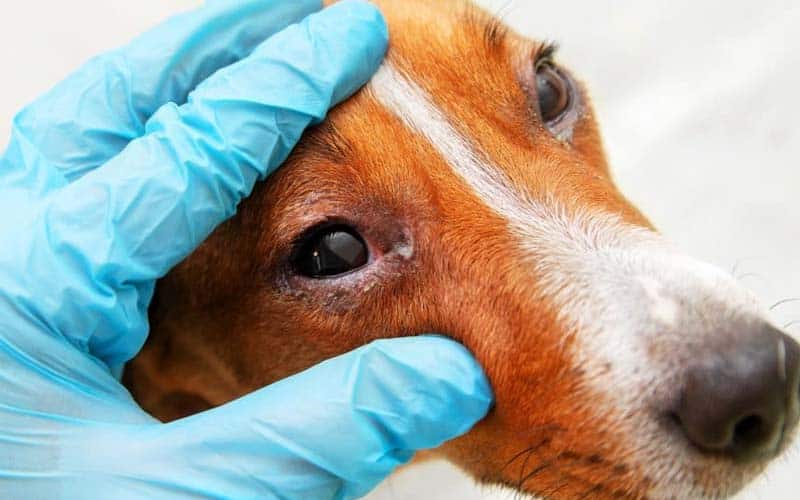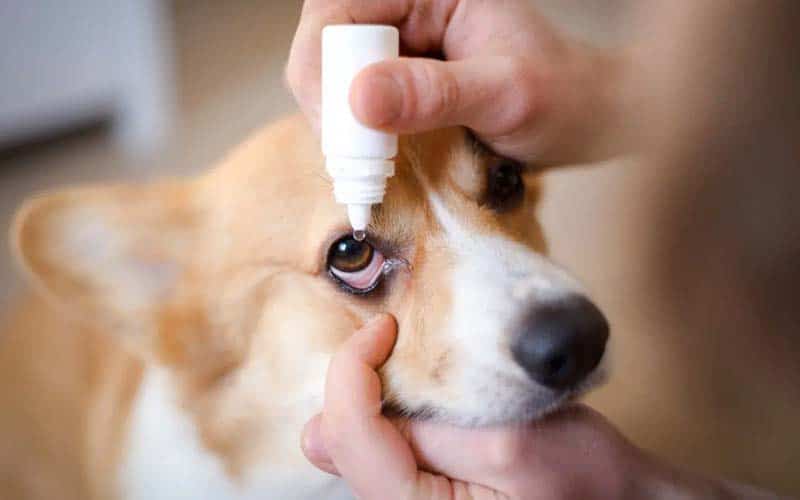As a dog owner, you want to keep your furry friend healthy and happy. Unfortunately, just like humans, dogs can experience health issues, including eye infections. Eye infections in dogs are common and can occur for a variety of reasons. In this article, we’ll explore the causes, symptoms, and treatment options for eye infections in dogs.

1. Causes of Eye Infections in Dogs
There are several causes of eye infections in dogs, including:
- Bacteria: Bacterial infections are one of the most common causes of eye infections in dogs. This can happen when bacteria get into the eye, causing inflammation, redness, and discharge.
- Viruses: Viral infections can also cause eye infections in dogs, such as canine distemper, which can lead to eye inflammation and discharge.
- Fungal Infections: Fungal infections are rare but can occur in dogs. They usually affect dogs with weakened immune systems, causing inflammation and discharge in the eyes.
- Allergies: Allergies can cause eye infections in dogs, as they can lead to inflammation and discharge.
- Trauma: Any trauma to the eye can lead to an infection, such as a scratch or foreign body in the eye.
2. Symptoms of Eye Infections in Dogs
There are several symptoms of eye infections in dogs, including:
- Redness: Redness around the eyes is a common symptom of eye infections in dogs.
- Discharge: Discharge from the eyes, including pus or mucus, is a sign of an eye infection.
- Swelling: Swelling around the eyes can be a sign of an infection.
- Squinting: Squinting or closing the eyes is a common symptom of eye infections in dogs.
- Cloudiness: If the eyes appear cloudy, it could be a sign of an infection.

3. Treatment Options for Eye Infections in Dogs
Treatment for eye infections in dogs depends on the cause of the infection. Your veterinarian will likely prescribe medication to treat the underlying cause of the infection, such as antibiotics for bacterial infections, antivirals for viral infections, or antifungal medications for fungal infections.
In addition to medication, your veterinarian may recommend flushing the eyes with saline solution or applying warm compresses to the affected eye. If the infection is caused by allergies, your veterinarian may recommend a change in diet or prescribe medication to help alleviate the symptoms.
Preventing Eye Infections in Dogs
Preventing eye infections in dogs is crucial to keeping your furry friend healthy. Here are some tips to prevent eye infections in dogs:
- Keep your dog’s eyes clean: Regularly clean your dog’s eyes to prevent debris from accumulating.
- Keep your dog’s face dry: Moisture around the eyes can lead to infection. Use a towel to dry your dog’s face after bathing or swimming.
- Keep your dog’s vaccinations up-to-date: Some vaccinations, such as the canine distemper vaccine, can help prevent eye infections.
- Avoid exposure to irritants: Avoid exposing your dog to irritants, such as cigarette smoke or air pollution, that can cause eye irritation.

In conclusion, eye infections in dogs are common and can occur for a variety of reasons. If you suspect your dog has an eye infection, it’s important to seek veterinary care immediately. With the right treatment and prevention measures, you can help keep your furry friend healthy and happy.